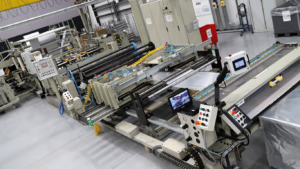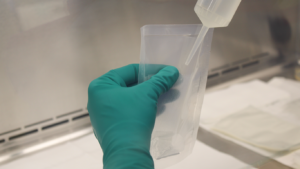Footprint, a global materials science technology company focused on creating a healthy planet, today announced the launch of a customized and tested portfolio of solutions for supermarkets designed to replace single-use plastics and foam, building on plant-based fiber solutions the company currently provides to individual food producers.
“Footprint is already delivering new materials for frozen food, ready-to-eat, dairy, meat and produce suppliers to replace plastic before products get to the supermarket,” Footprint Senior Vice President of Sales Jeff Bassett said. “To accelerate the transition, we’ve created a set of offerings for supermarkets to use with their own private-brand products, or to support in-store packaging and eliminate legacy plastic. We believe Footprint is best positioned to replace legacy plastic with plant-based solutions in every aisle of the supermarket.”
READ ALSO: Troy Swope aims to eliminate the use of plastics through Footprint
Historically, no good alternatives existed for plastic or foam meat trays, deli foods, microwaveable meals and shelf-stable containers, that could also withstand rigorous performance requirements of supermarkets such as resistance to humidity, hot/cold environments, oil and grease resistance, automated de-nesting and microwaving.
Several of these solutions were developed and tested by working with global consumer brands and are available in stores today. They are also being offered at scale to supermarkets directly.
“Our partnership with Footprint has helped us to expand our offerings of bio-based packaging options that support our commitment to reduce plastic waste.” said Chad Coester, Senior Vice President of Own Brands of Albertsons Companies. “These innovative materials will help us work toward our Plastics and Packaging Pledge goals to have 100% of our Own Brands product packaging be reusable, recyclable or compostable by 2025.”
Other items, like mushroom or berry containers and produce trays are also part of the supermarket line typically brought into stores by third party suppliers.
“Working in coordination with some of our key partners, we were able to trial Footprint’s plant-based fiber trays for our corn offerings and ultimately replace foam trays at select retail locations,” said Katie Veenstra, Director of Marketing of GloriAnn Farms. “Footprint helped us develop a tray that performs as well as foam while meeting our, and our retail customers’ sustainability goals.”
Based on the west coast, GloriAnn Farms is one of the nation’s leading value-added sweet corn suppliers, shipping their corn products both domestically and internationally.
Research shows that consumers are increasingly aware of the health and environmental detriments of plastic, with 84% of people surveyed saying they select products with less single-use plastic packaging (1). Another survey noted that 88% of people feel that brands have a responsibility to take care of the planet and its people (2).This has become more apparent through the COVID-19 pandemic as there has been a spike in plastic use and eating at home which has contributed to hyper-sensitivity around the abundance of disposable food containers and what they’re made of (2).
To learn more about Footprint’s plastic-free alternatives, visit www.FootprintUS.com.




